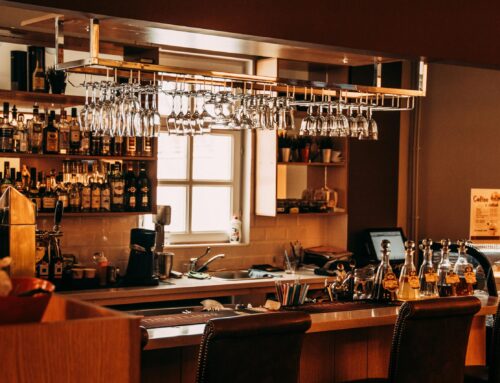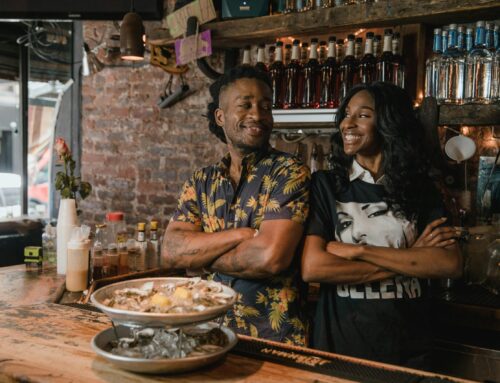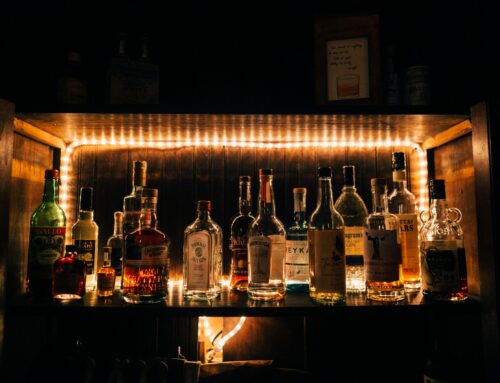Opening a new bar or restaurant is exciting, as owners get a real sense of accomplishment from selecting a location, choosing décor, performing renovations, and recruiting and training a staff for that all-important opening night.
Among the less exciting—but just as necessary—tasks involved in opening and running a successful restaurant or bar is obtaining commercial general liability insurance and other necessary insurance policies. Finding inexpensive and comprehensive coverage is a challenge for business owners, but, by shopping smart and taking steps to minimize risk, owners can get affordable coverage.

Commercial general liability insurance for restaurants and bars isn’t just a good idea; in many states, it’s the law. Most jurisdictions require restaurants to have a commercial general liability policy to obtain a business license. Restaurants and bars serving alcohol must have liquor liability or dram insurance to legally operate. These policies not only protect the business owner’s interest, they also protect the public from damages that may arise from the operation of these ventures.
In general, commercial policies cover businesses against liability claims arising from bodily injury or property damage arising as a result of premises, operations, products, and completed operations. Liquor liability coverage handles claims resulting from a business’s sale of alcohol products.
On average, commercial general liability insurance and liquor liability policies can run from a few hundred to several thousand dollars each. Don’t be surprised if your annual premium is well above these rates, however, as many factors can affect how much your insurer charges you for these policies.

Factors Affecting Business Insurance Premiums
Insurance premiums are a reflection of the level of risk of loss your insurer determines that your business poses. The more risk your insurer perceives, the higher your premium will be. When issuing commercial general liability and liquor liability or dram insurance policies, insurers look at a number of factors to come up with a price:
- Location – Where your bar or restaurant is located can have a big impact on insurance premiums for the business. Restaurants or bars located in buildings where several businesses are present, such as strip malls or large commercial buildings, may be perceived as a higher risk than those located in stand-alone facilities. Businesses located in busy urban areas can also expect to pay more for insurance than those located in quiet, rural areas. Ditto for bars and restaurants located in high crime areas vs. safer regions.
Another part of a location that will affect your insurance premium is the quality of your facility. If your bar or restaurant’s location has the latest safety gear and equipment, you may get a lower insurance rate than businesses located in older, less safe locations.
- Percentage of revenues derived from alcohol sales – How much your business depends on liquor sales will have a big impact on your liquor liability coverage. A restaurant that only relies on liquor sales for a fraction of its revenue will likely pay a lower liquor liability premium than a bar that relies on beer and liquor sales for almost all its income. Businesses may be able to reduce liquor liability insurance premiums by boosting sales of other products to make liquor sales a smaller percentage of their revenue.
- State policies – Liquor liability laws vary from state to state, and some states take a harder line toward restaurants and bars regarding liabilities that arise as a result of alcohol sales. Liquor liability coverage is typically more expensive in states that hold bar and restaurant owners liable for injury to third parties caused by intoxicated patrons.

For example, in Texas, liquor liability or dram insurance for bars and restaurants is governed by the 1987 Dram Shop law. Under the law, third parties injured as a result of the actions of an intoxicated patron of a bar or restaurant can recover damages from the business if they can prove its employees served the patron when he or she was obviously intoxicated and a danger to himself or others.
Texas’s dram shop law is less harsh toward restaurants and bars than those of other states, as plaintiffs cannot recover exemplary damages in liquor liability suits. Exemplary damages can drastically boost awards to plaintiffs, so Texas bars and restaurants are less exposed to loss than similar businesses in other states.
- Time in business – How long your bar or restaurant has been in operation will affect the rate you pay for liquor liability and commercial general insurance. Insurers often cut a break to established businesses, as they’ve had time to develop policies and processes for reducing risk. Established businesses also often have a track record of few or no claims they can show to insurers, proving that they’re a good risk. Fledgling bars and restaurants don’t have that history and, as a result, insurers deem them to be a greater risk.
Most restaurants close during their first year of operation, but those that stay open five years will stay in business for at least 10 years. If you can make it past the first year and then get a few more years under your belt as a restaurant or bar owner, chances are that you’ll see a decrease in your insurance premiums for commercial general and dram insurance policies.
 Claims history – Businesses that file few claims won’t have premiums as high as those who frequently file claims with their insurers. Restaurants and bars can reduce their likelihood of having to file a claim by providing proper training to employees regarding safety issues. Properly training employees regarding avoiding serving alcohol to minors is especially helpful, and this training can also help mitigate losses if they’re sued by a third party injured by the actions of a drunk patron.
Claims history – Businesses that file few claims won’t have premiums as high as those who frequently file claims with their insurers. Restaurants and bars can reduce their likelihood of having to file a claim by providing proper training to employees regarding safety issues. Properly training employees regarding avoiding serving alcohol to minors is especially helpful, and this training can also help mitigate losses if they’re sued by a third party injured by the actions of a drunk patron.- Coverage amounts – The more coverage you buy, the more you can expect to pay for it. You may not want to skimp on your policy, however. Remember, your insurance policy is what protects your personal and business assets if your company is sued. You want to have sufficient coverage to pay for potential judgments against your bar or restaurant in favor of plaintiffs.
Think About Quality
Cheapest may not always be best when you’re purchasing liquor liability and commercial general liability coverage for your bar or restaurant. When shopping around, be sure to read the fine print of any policy you consider seeing what risks are excluded from coverage. Some cut-rate policies may have exclusions barring coverage for circumstances most policies cover.
Also look into the insurer’s history of paying claims. If a lot of business owners are complaining about an insurer’s process and promptness for paying claims, it may be worthwhile to shell out a few extra dollars for a better policy.
For bar and restaurant owners seeking liquor and general liability insurance they can depend on, Tabak Insurance Agency can help. Tabak Insurance Agency has been helping Texas business owners find comprehensive, affordable coverage for bars and restaurants for 25 years. Thanks to the agency’s experience and focus on bar and restaurant clients, Tabak Insurance Agency has saved clients an average of 20 percent in premiums over the past two years.
When you’re running a restaurant, saving every dollar and covering every potential liability is vital to your livelihood and that of your employees. Tabak Insurance Agency can help you find the affordable hospitality insurance coverage you need to rest easy at night. Contact the agency today for a custom assessment of your insurance needs and a plan that’s crafted just for your business.
Sources
- https://www.inc.com/articles/201111/business-start-up-costs-restaurant.html
- https://www.lexology.com/library/detail.aspx?g=286ca699-afb4-4e06-8184-123ed5626b5a
- https://yourbusiness.azcentral.com/average-life-span-restaurant-6024.html





